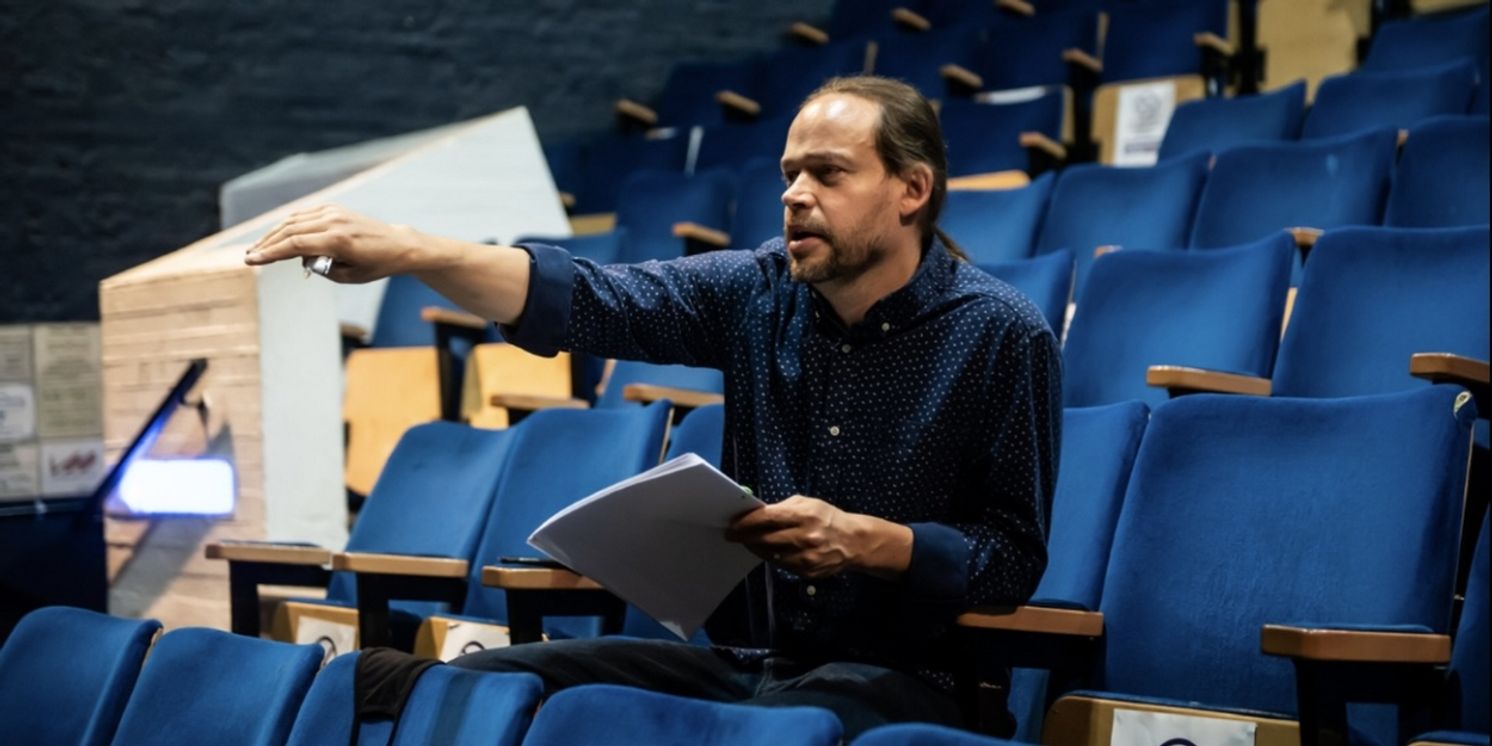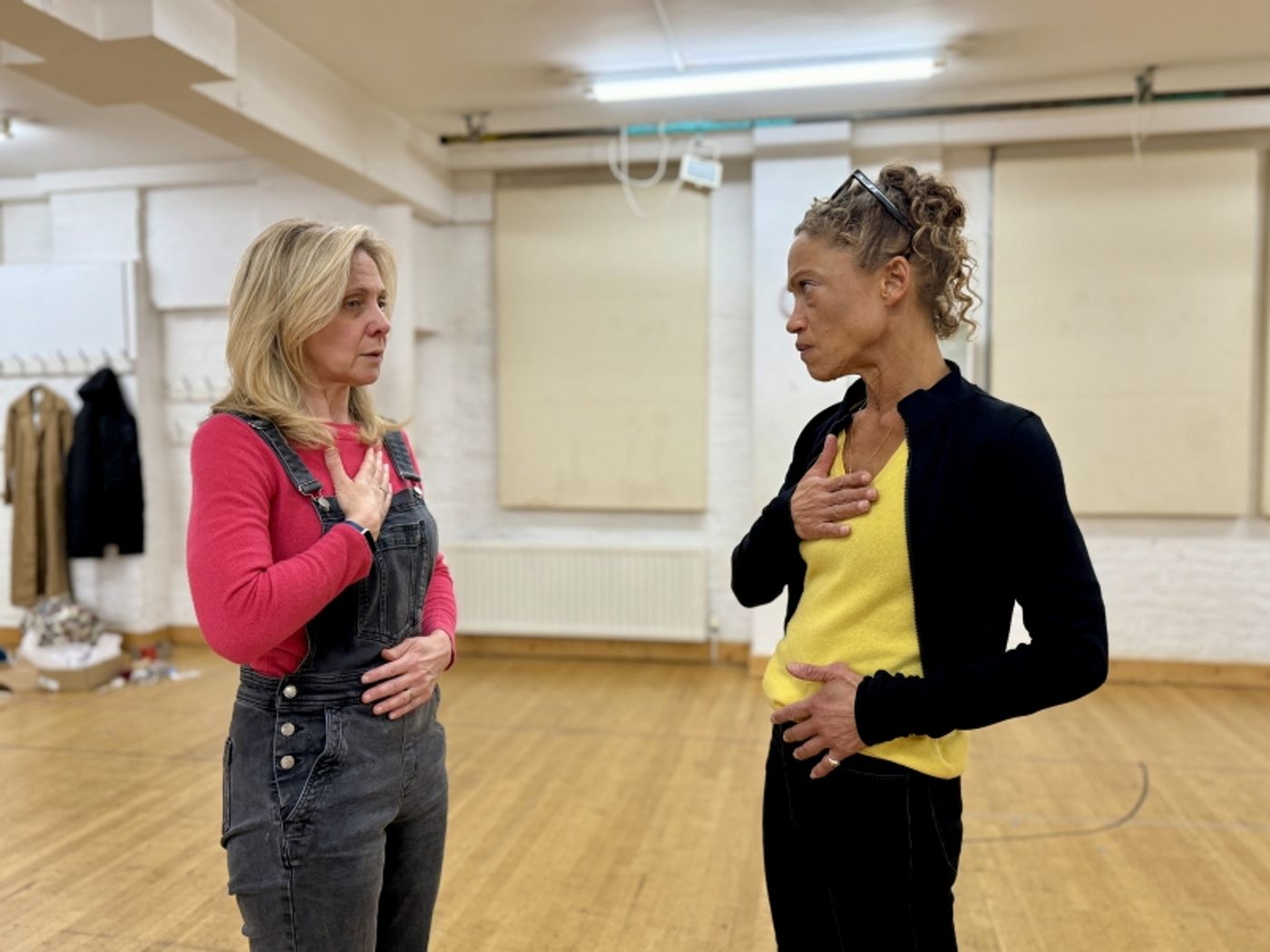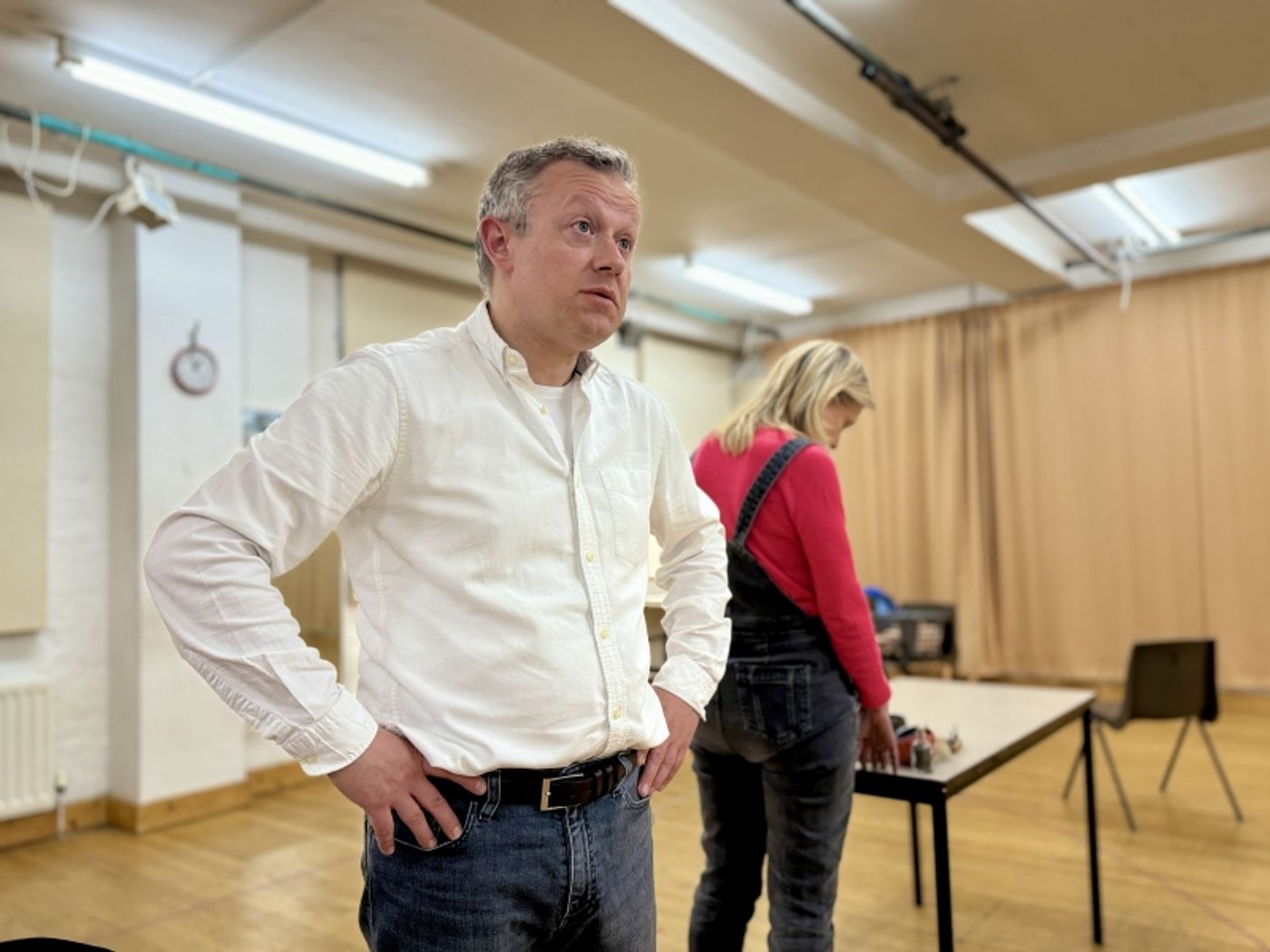Guest Blog: 'It Challenges Audiences to Take a View About Humanity': Director James Haddrell on Bringing Bryony Lavery's FROZEN to the Stage
'I’m a great believer in moments of silence in theatre'

On 27 December 1973, Lucy Partington was waiting for a bus home, when a couple pulled up in a car and offered her a lift. The couple were Fred and Rosemary West, and Lucy was never seen alive again.
On 19 May 1994, Scottish born Robert Black was convicted of the kidnapping, rape, and murder of three girls, with further convictions for kidnapping and yet another murder conviction to follow.
On January 23 1989, on the day before Ted Bundy was executed, he asked for a visit from Dr Dorothy Lewis, a psychiatrist who has spent decades interviewing, studying and testifying about some of America’s most violent serial criminals.
The three never met and their cases never intersected - that is, until playwright Bryony Lavery embarked on her research for Frozen, her scorching drama about child murder and redemption.
In Lavery’s play a latter day Red Riding Hood named Rhona, aged 10, leaves home to walk to her Grandma’s house, and doesn’t come home. She is instead abducted by Ralph, leaving her mother Nancy with no knowledge either of her daughter’s whereabouts or, as time goes by, of whether she is alive or dead.
Twenty years later, and we find Ralph in prison following what we suspect is a botched attempt to kidnap another child, and academic Agnetha flying to London to study him. Meanwhile, Nancy and her older daughter Ingrid are dealing in their very different ways with the paralysing effects of not knowing, and the inevitably devastating effects of knowing.
In the same way that Lavery’s three sources did not intersect in real life, her three characters begin the play with a series of monologues, glimpses into their state of mind, their actions, their attempts to navigate the situation, but over time they gradually begin to intertwine.
On that basis, we were all keen that this structure be allowed to inform the whole production, not just exist in the text. Therefore, our designer Alex Millidge has done a fantastic job in creating three separate worlds on and around a revolving set, celebrating the artifice of Lavery’s structure, giving the actors a space each to inhabit and offering moments of crossover, either with sound, lights or occasionally the characters themselves.
The three characters exhibit so much of Lavery’s research that in 2004 she was accused of plagiarism, with real-life psychiatrist Lewis instructing lawyers to sue. However, much of Lavery’s research on Lewis came from a New Yorker article by Malcolm Gladwell, who declined Lewis’ request to sign over the copyright in his article so that she could sue on his behalf. Instead, Gladwell interviewed Lavery and ran a piece in which he described her work as ‘permissible borrowing’, suggesting that Lewis did not understand the creative process.

Photo Credit: Taylor Jay
In the rehearsal room, that gives me and the cast (Kerrie Taylor, James Bradshaw and Indra Ové) a series of decisions to make. The writing, and our bold new set, makes it clear that this is a piece of theatre, naturalistic performances played out on a non-naturalistic set, but the sources that Lavery used are accessible, so we have access to as much ‘truth’ as we want. We can go into far greater detail about Black’s crimes, Lewis’ science and the plight of Lucy’s family than is revealed in the play - but should we? How far do we go in using the research to present those real people on stage, or how much do we take Lavery’s words and use them to create fresh characters, sharing a context with their sources but having a life of their own?
I’m a great believer in moments of silence in theatre - as in life, the most impactful exchanges often happen in silence - but for those moments to be credible the actors have to know what the unspoken exchanges are. That, for me, is where the research has really been invaluable. I love working with actors to script the unspoken dialogue that passes between people, and having access to the voices and the thoughts of a trailblazing academic, a series of bereaved parents and a serial child murderer has helped us immeasurably in doing that, ensuring that our characters can be presented as fully rounded people, not just defined by the words they say or the things we see them do.

Photo Credit: Taylor Jay
Ultimately this play challenges audiences to take a view about humanity. Does everyone have an inherent humanity that can be damaged by outside forces, or are some people fundamentally lacking in that humanity regardless of outside influences. All of us in the room have a view - and several of us are parents, which can skew our view (I’ve wanted to produce this play since before I had children, and the shift in its power has been extraordinary for me) - but I suspect audiences are going to find themselves surprised in how they feel as they follow the journeys of these three damaged human beings.
Frozen is at Greenwich Theatre from 26 April - 19 May
Main Photo Credit: Lidia Crisafulli

Powered by
|
Videos

